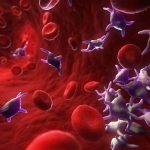Medications That Improve Sperm Count and Motility in Watery Semen

Watery sperm, also known as watery ejaculate, can be a source of worry and curiosity for individuals who notice changes in the consistency of their semen. Semen is the fluid released during ejaculation and is a combination of sperm cells, seminal fluid, and other secretions from the male reproductive system. Normally, semen appears milky-white in color and has a relatively thick consistency. However, in some cases, the semen may appear thin, clear, or more watery than usual.
Several factors can contribute to the occurrence of watery sperm, and understanding these factors can help individuals assess whether there is a reason for concern or if it is a natural and temporary variation. Some of the common causes of watery sperm include:
1. Hydration: Adequate hydration is essential for maintaining the body’s overall fluid balance. When a person is not properly hydrated, their body may extract more water from the ejaculate, leading to a higher water content and a more watery appearance.
2. Frequency of ejaculation: Men who ejaculate frequently, whether through sexual activity, masturbation, or nocturnal emissions (commonly known as “wet dreams”), may experience more watery sperm. When ejaculation occurs frequently, the body may not have enough time to replenish the semen fully, resulting in a more diluted appearance.
3. Age: As men age, there can be changes in their reproductive system and hormonal balance. These changes can lead to alterations in the composition of semen, and it may become thinner and more watery in consistency.
4. Diet: A balanced and nutritious diet plays a crucial role in maintaining overall health, including reproductive health. Poor nutrition, vitamin deficiencies, or a diet lacking essential nutrients can negatively impact semen quality and contribute to watery sperm.
5. Certain medications and medical treatments: Some medications, such as those used in cancer treatments (chemotherapy) or hormone therapies, can affect the production and composition of semen temporarily. This can result in the semen appearing more watery during the course of treatment.
6. Infections or underlying health issues: Infections or medical conditions that affect the male reproductive system, such as prostatitis or urethritis, can influence the consistency of semen. In such cases, watery sperm may be accompanied by other symptoms like pain, discomfort, or changes in urinary patterns.
Watery sperm can have implications for sperm count and motility, both of which are essential factors in male fertility. Sperm count refers to the number of sperm cells present in a given amount of semen, while sperm motility refers to the sperm’s ability to move and swim effectively. Both of these parameters play a crucial role in the chances of successful conception.
When semen appears watery, it means that the concentration of sperm in the ejaculate might be lower than normal, which can lead to a reduced sperm count. Low sperm count, known as oligospermia, is a common cause of male infertility. If there are fewer sperm available for fertilization, the likelihood of successful conception decreases.
Additionally, watery semen might also impact sperm motility. Sperm motility is crucial because it enables sperm to travel through the female reproductive tract and reach the egg for fertilization. If sperm have poor motility due to changes in the composition of the semen, they may struggle to navigate and reach the egg, further reducing the chances of fertilization.
Infertility is a deeply concerning issue for many couples trying to conceive, and one of the factors that can contribute to difficulties in conception is watery sperm. Fortunately, there are medications available that can help address these concerns and improve fertility. In this article, we will explore some drugs used to treat watery sperm and boost sperm count and motility.
Drugs For Watery Sperm
The following medications have been shown to increase sperm count and motility they include:
Clomiphene Citrate
Clomiphene citrate, commonly known by its brand names Clomid or Serophene, is a selective estrogen receptor modulator (SERM) that has proven to be an effective treatment for male infertility caused by hormonal imbalances. This medication, initially developed for female infertility, has been adapted for use in men with low sperm production due to hormonal factors.
When administered to men with hormonal imbalances affecting their fertility, clomiphene citrate acts as an anti-estrogenic agent in the brain. It competes with estrogen for binding to certain receptors, leading the brain to perceive lower estrogen levels. This triggers the release of gonadotropin-releasing hormone (GnRH) in higher quantities. As a result, the pituitary gland increases its secretion of follicle-stimulating hormone (FSH) and luteinizing hormone (LH). These hormones are essential for stimulating the testicles to produce more testosterone, which, in turn, enhances sperm production.
Numerous studies have shown promising results regarding clomiphene citrate’s effectiveness in improving sperm count and motility in men with hormonal-based infertility. Clinical trials and real-world experiences have highlighted its potential to increase sperm production, leading to improved chances of conception for couples struggling with fertility issues. Additionally, clomiphene citrate is generally well-tolerated, with limited side effects reported, making it a favorable option for those seeking fertility treatments.
Human Chorionic Gonadotropin (hCG)
Human Chorionic Gonadotropin (hCG) is a hormone that plays a crucial role in fertility and reproduction. It is naturally produced by the placenta during pregnancy and serves to support the development of the fetus. However, hCG can also be utilized in the field of male fertility treatment to address hormonal imbalances and enhance sperm production.
When administered via injections, hCG acts similarly to luteinizing hormone (LH), which is responsible for signaling the testes to produce testosterone. By mimicking the actions of LH, hCG stimulates the Leydig cells in the testicles, leading to an increase in testosterone production. Elevated testosterone levels, in turn, boost sperm production and improve sperm count and motility.
hCG is often used in combination with other fertility treatments, such as clomiphene citrate or gonadotropin-releasing hormone (GnRH) agonists. This combination therapy is particularly beneficial for men with hormonal imbalances affecting their fertility. The medications work synergistically to enhance hormonal stimulation and optimize sperm production, providing a comprehensive approach to addressing male infertility.
Studies have demonstrated the effectiveness of hCG in improving sperm count and motility in certain cases of male infertility. It has shown promising results for men with low sperm production due to hormonal factors, leading to increased chances of successful conception for couples struggling with fertility issues. However, the success of hCG therapy can depend on the specific cause of male infertility, and not all individuals may experience the same level of improvement.
Gonadotropin-Releasing Hormone (GnRH) Agonists
Gonadotropin-Releasing Hormone (GnRH) agonists are a class of medications used in the treatment of male infertility caused by hormonal imbalances. GnRH is a hormone produced in the hypothalamus of the brain, and its primary function is to regulate the release of follicle-stimulating hormone (FSH) and luteinizing hormone (LH) from the pituitary gland. FSH and LH are critical hormones in the process of spermatogenesis, the production of sperm in the testicles.
GnRH agonists work by stimulating the pituitary gland to release higher levels of FSH and LH. By enhancing the production of these hormones, GnRH agonists promote the development and maturation of sperm cells in the testicles. This increased stimulation of the testicular cells leads to an elevation in sperm production, ultimately improving sperm count and motility.
These medications are often used in combination with other fertility treatments, such as human chorionic gonadotropin (hCG) or clomiphene citrate. The combined therapy aims to provide a comprehensive approach to addressing male infertility, targeting various aspects of hormonal regulation and sperm production.
GnRH agonists have shown to be effective in certain cases of male infertility, especially when hormonal imbalances are the underlying cause of low sperm count or motility. They are particularly useful for individuals with conditions that affect the natural regulation of GnRH, such as idiopathic hypogonadotropic hypogonadism (IHH) or hypothalamic-pituitary dysfunction.
Antioxidant Supplements
Antioxidant supplements have gained recognition for their potential role in improving sperm quality and addressing male infertility. While they are not classified as drugs, these supplements can play a significant role in supporting reproductive health by combating oxidative stress.
Oxidative stress occurs when there is an imbalance between harmful free radicals and antioxidants in the body. Free radicals are unstable molecules that can cause damage to cells, including sperm cells. When there is an excessive presence of free radicals, they can attack and damage sperm, leading to reduced motility and fertility issues.
Antioxidants are substances that help neutralize these harmful free radicals, thereby protecting cells from oxidative damage. In the context of male infertility, antioxidant supplements can help protect sperm cells from the damaging effects of oxidative stress, preserving their integrity and improving their overall quality.
Several antioxidant supplements have shown promise in promoting male fertility. Some of the commonly used ones include:
- Vitamin C: Vitamin C is a powerful antioxidant that helps protect sperm from oxidative damage. It plays a vital role in maintaining the structural integrity of sperm cells and enhancing their motility.
- Vitamin E: Vitamin E is another potent antioxidant that can improve sperm health by reducing oxidative stress and supporting the cell membrane’s stability.
- Zinc: Zinc is an essential mineral for male reproductive health. It is involved in the production and maturation of sperm and helps protect sperm cells from oxidative damage.
- Selenium: Selenium is a trace mineral that supports the production of healthy sperm and enhances sperm motility by neutralizing free radicals.
- Coenzyme Q10: Coenzyme Q10 is an antioxidant that plays a crucial role in energy production within cells, including sperm cells. It helps enhance sperm motility and overall sperm health.
Bromocriptine
Bromocriptine is a medication primarily used to treat conditions related to high levels of the hormone prolactin. In men, elevated prolactin levels can disrupt the delicate hormonal balance in the reproductive system, resulting in hormonal imbalances that may affect sperm production. This hormonal disruption can contribute to fertility issues, including a decrease in sperm count and motility. As a consequence, men with hyperprolactinemia may experience the manifestation of watery sperm, which can further hinder the chances of successful conception.
Bromocriptine functions as a dopamine receptor agonist, which means it acts on the brain to stimulate dopamine receptors. Dopamine is a hormone that inhibits prolactin production. By mimicking dopamine’s effects, bromocriptine reduces the secretion of prolactin from the pituitary gland, thus normalizing prolactin levels in the body.
By lowering prolactin levels, bromocriptine helps restore the hormonal balance in men with hyperprolactinemia-related infertility. This correction can lead to improvements in sperm production, including an increase in sperm count and enhanced sperm motility. As a result, bromocriptine can be an effective treatment option for men whose fertility challenges are linked to elevated prolactin levels and hormonal imbalances.
It is crucial to note that not all cases of watery sperm or male infertility will benefit from drug treatments. The effectiveness of these medications can vary depending on the underlying cause of infertility. Additionally, medications should always be prescribed and monitored by a qualified healthcare professional, such as a urologist or a reproductive endocrinologist. They will conduct a thorough evaluation, including semen analysis, hormone testing, and medical history assessment, to determine the most suitable treatment plan for each individual.
In some cases, lifestyle modifications such as improving diet, managing stress, maintaining a healthy weight, and avoiding tobacco, alcohol, and recreational drugs can also positively impact sperm quality and overall fertility.
In conclusion, watery sperm can be a distressing issue for couples trying to conceive, but there are medications available that can help increase sperm count and motility. Clomiphene citrate, human chorionic gonadotropin, GnRH agonists, and bromocriptine are some of the drugs used to address male infertility caused by hormonal imbalances. Additionally, antioxidant supplements can be beneficial in supporting sperm health. However, the effectiveness of these medications can vary depending on the individual’s specific condition, and it is essential to seek professional medical advice for appropriate diagnosis and personalized treatment options. With proper medical guidance and support, many couples can overcome fertility challenges and realize their dreams of starting a family.





